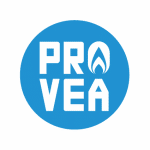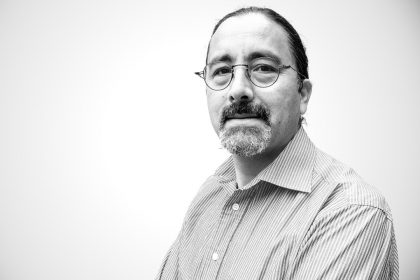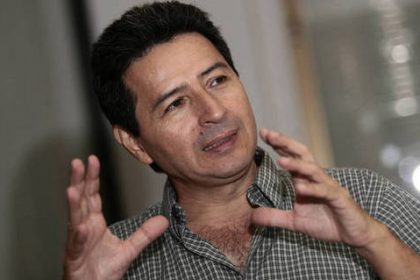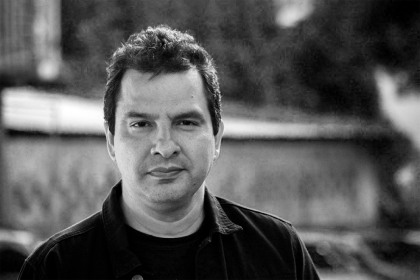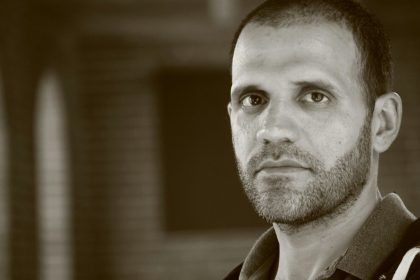ABOUT THE AUTHOR:
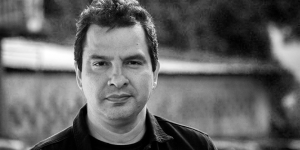
Rafael Uzcátegui
Sociologist and freelance editor. He is currently the General Coordinator of Provea.
Rafael Uzcátegui │ According to the recent report of the United Nations Independent Fact-Finding Mission, the current Venezuelan ministers of Defense and Interior are responsible for serious human rights violations that have occurred in the country since 2014. Both are on the list of graduates from the so-called “School of the Americas”, an institute created by the United States in 1946 that has been denounced by activists across the continent for being a center where torture and murder techniques were taught.
In 1946, the United States created a military training center in Panama for war and counterinsurgency operations. During the Cold War, hundreds of military personnel from all over Latin America were trained to keep the influence of the Soviet Union in the region at bay. As reported by Amnesty International in 2005: “In the mid-1990s, the US government revealed that the School of the Americas (SOA) had used training manuals that endorsed practices such as torture, extortion, kidnapping, and execution. While some curricular changes have been implemented at this training institute, no one has ever been held accountable for illegal training manuals or the behavior of SOA graduates. “
According to the organization SOA Watch, some of the former students of the School of the Americas “are prominent human rights offenders such as the Argentine Leopoldo Galtieri and Roberto Viola, Hugo Bánzer Suárez from Bolivia, Roberto d’Aubuisson from El Salvador, besides two of the three officers linked to the murder of Archbishop Oscar Romero; three of the five officers cited in the rape and murder of four American nuns; and ten of the twelve soldiers who participated in the massacre of 900 civilians in El Mozote, El Salvador ”.
Due to the controversy, the center was transferred to the state of Georgia in 1984 and renamed the “The Western Hemisphere Institute for Security Cooperation (WHINSEC)”. The criticism has remained to this day since its detractors claim the institute keeps its original mission.
In 2004, the Venezuelan State stopped sending students to its different courses. According to available figures, 3,590 Venezuelans had completed their training at the institute until then. Two of them currently hold senior positions in the Government of Nicolás Maduro. And their names consistently appear in the recent report by the UN Independent Fact-Finding Mission on situations that occurred in the country since 2014.
According to the list available on the SOA Watch website (https://soaw.org/graduados-de-soa/), Captain Vladimir Padrino López took the “Psychological Operations Course” from February 21 to April 19, 1995. Then, from April 24 to May 5 of the same year, he participated in the “Training Course for instructors”, which suggests that he was tasked with bringing home the lessons learned in the institute. For his part, Captain Nestor Luis Reverol Torres took the “Resource Management Course” from October 15 to November 14, 1996. Today, Padrino is the Minister of Defense, and Reverol is in charge of the Ministry of Interior and Justice, two top-level positions in the Maduro administration.
The UN Mission was mandated by the UN Human Rights Council in September 2019 to investigate four situations that have occurred in Venezuela since 2014: forced disappearances, extrajudicial executions, torture, and arbitrary detentions. One of the key points of the investigation was the public security operations called “People’s Liberation Operations”, which led to serious and systematic human rights violations according to Venezuelan NGOs. The report states that “the Mission has reasonable grounds to believe that those in the highest positions of power regarding the OLPs/OLHPs, in particular the President, the Minister of the Interior, and the Minister of Defence contributed to the commission of the violations and crimes that occurred during the operations between July 2015 and July 2017.”
The investigation showed that Padrino López was responsible for the creation of the so-called “Plan Zamora”, under which the 2017 protests that caused more than 140 deaths were severely repressed. The UN Mission affirmed that “the plan is implemented under the premise that “in part or throughout the national territory, disaffected and organized groups carry out violent protests that generate serious disturbances to public order. According to the Plan Zamora, such political threats include media campaigns against the Government, pronouncements by political actors against the Government and promotion of criminality and insecurity as part of “a destabilization strategy” by actors against the Government”. Padrino López is cited in other cases described in the more than 400 pages that make up the investigation.
The report indicates that Nestor Reverol, at the time General Commander of the Bolivarian National Guard (GNB), published a manual with operating rules and procedures that describe the actions of the GNB in response to situations that threaten public order. The internal enemies of the State, according to the document, would be “those individuals, who can be national or foreigners, who are on national territory and maintain positions opposed to those of the Government”. The three independent experts that make up the UN Mission, including Francisco Cox, who also investigated the disappearance of the 43 students in Ayotzinapa, Mexico, wrote: “The Mission has reasonable grounds to believe that the President and the Minister of Interior had knowledge of and contributed to the commission of the extrajudicial executions committed in the context of security operations”.
The report of the UN Mission also describes a series of methods and cases of torture against persons deprived of liberty in Venezuela for political reasons. One could speculate if any of them has the signature of the School of the Americas. The truth is that the legacy of this odd university continues to live on the continent, and is expressed in authoritarian regimes at both ends of the political spectrum. This is a good reason for Venezuelans to get involved in the international movement that for many years has called for the closure of the School of the Americas.
Translated by: José Rafael Medina
ABOUT THE AUTHOR:

Rafael Uzcátegui
Sociologist and freelance editor. He is currently the General Coordinator of Provea.
